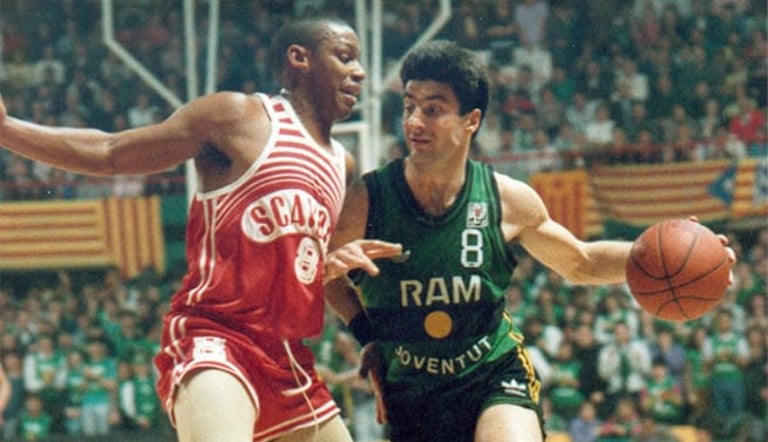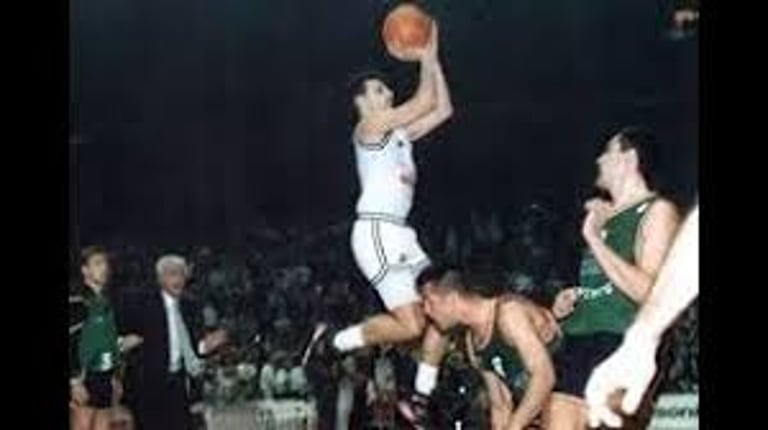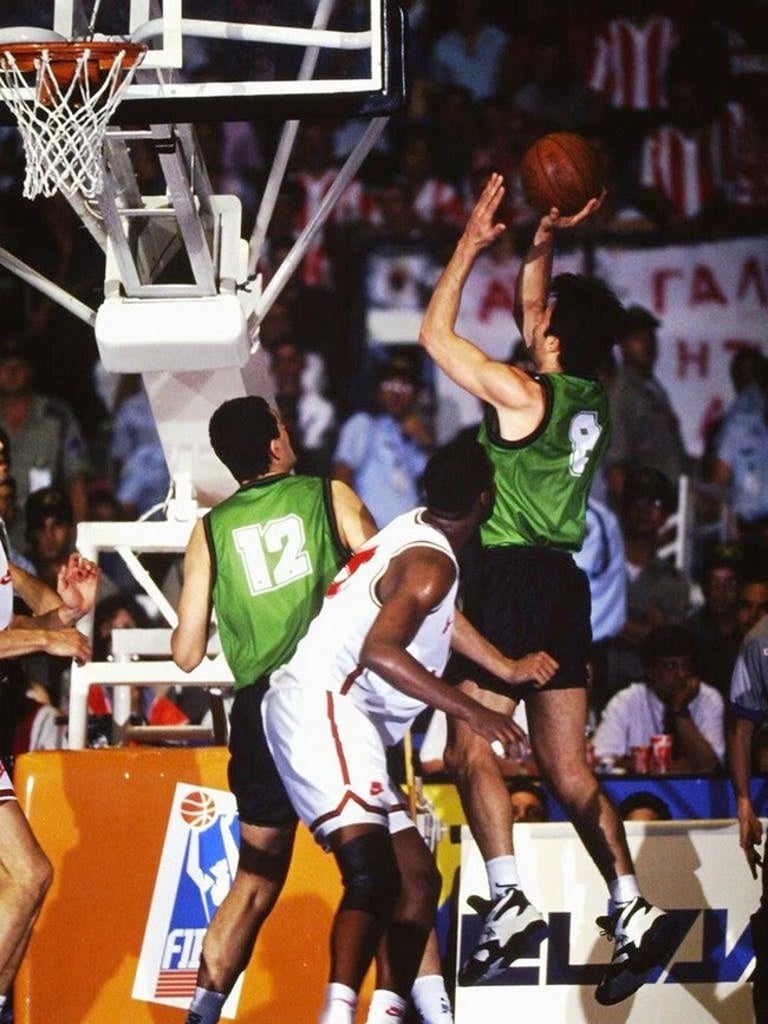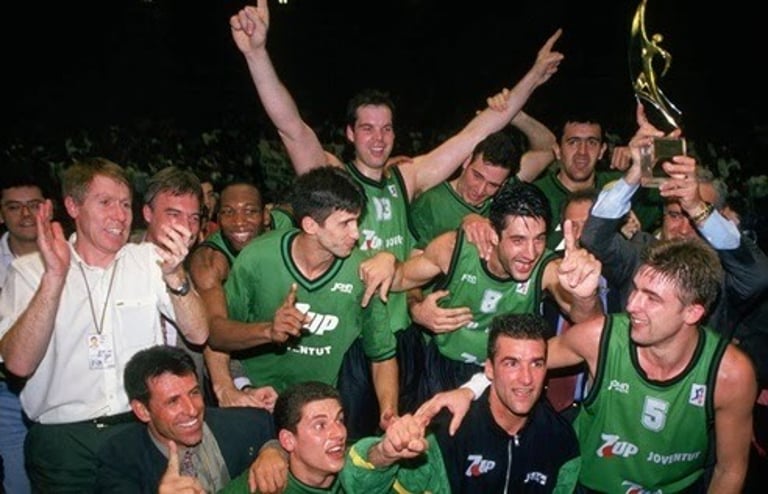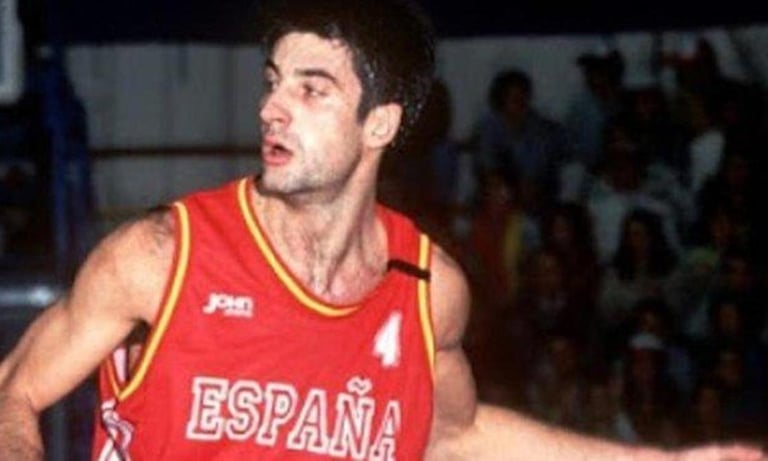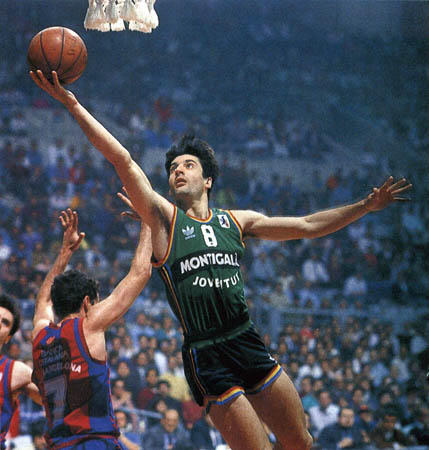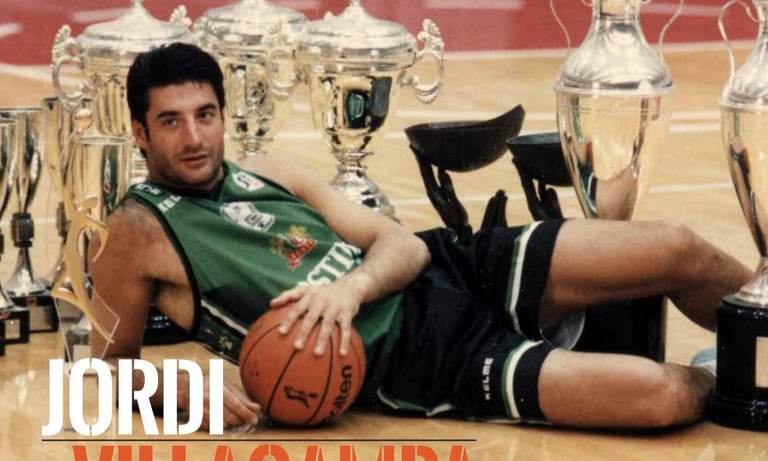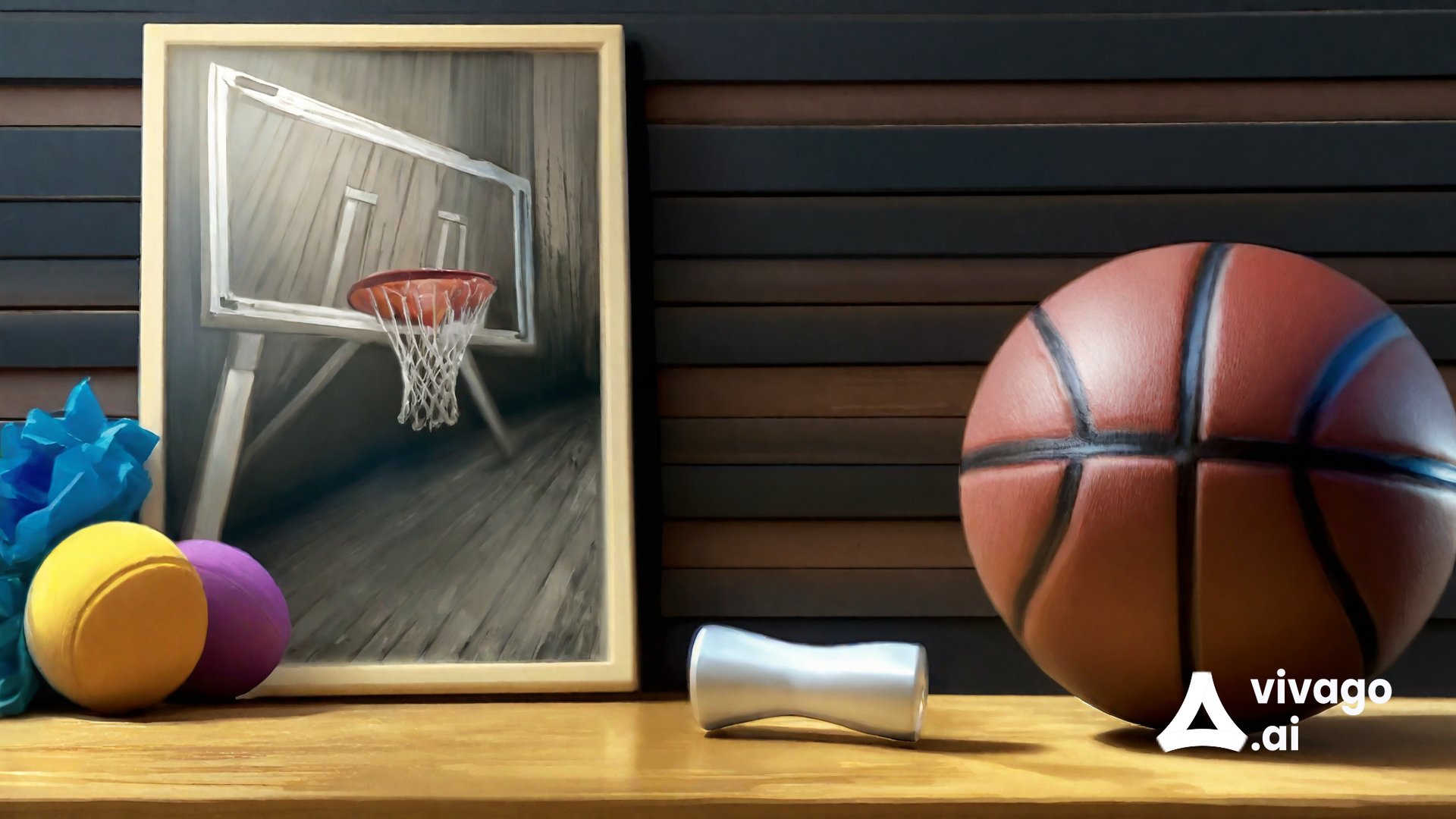
Jordi Villacampa
"8 on the shirt - 10 on the court”
RETROPLAYERS
Antreas Tsemperlidis
6/24/20255 min read
Spain’s national team is considered the most successful -at least in Europe- so far in the 21st century. Names like Gasol, Navarro, Rudy, and that entire golden generation brought La Furia Roja to the top. At the same time, the Liga ACB holds the honorary title of the best basketball league in Europe. But many years ago, other equally great players carried the load for both Spanish club competitions as well as the national team, without -at least in my view- receiving the recognition they trully deserve. One of the best, yet most underrated, who recently celebrated his 61st birthday, is the legendary Jordi Villacampa.
On December 22, 1997, at the Pavelló Olímpic, Joventut Badalona said goodbye and paid tribute to the greatest basketball player ever to wear its jersey. No one was more connected to the team than him, serving it for eighteen (18) full years. With the club, he won titles in both Spain and Europe, establishing himself as one of the finest guard-forwards of his generation. He was a 16-year-old rookie when Manuel Comas trusted him with a place in the first team, and he retired at 34 as a living legend. In today’s age of absolute professionalism, where players switch teams three or four times in one season, Villacampa’s loyalty to Badalona may seem outdated. Some might think he stayed so long because he had no other offers. Far from it—Barcelona and Real Madrid tried many times to lure him away, dreaming of duos with Epi and Dražen, respectively. But he would never trade in his green No. 8 jersey, and he would lead the team to the greatest triumphs in its history.
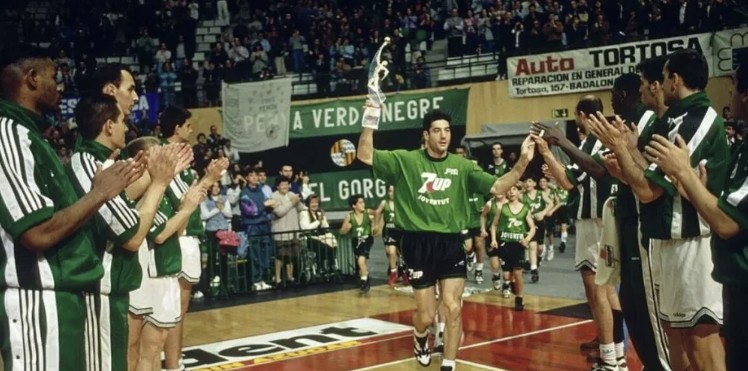

Let’s take a closer look at Villacampa and his characteristics. For younger fans who never saw him play, imagine an early version of Rudy Fernández. At 1.96 meters tall, Jordi was the ideal prototype of the Spanish basketball player. In an era when physical conditioning wasn’t emphasized, Villacampa was one of the most athletic European guards (alongside names like Galis, Giannakis, Doron Jamchi, Marčiulionis, and Dacoury). Incredibly explosive, fast, an excellent shooter, and a solid defender. These attributes allowed him to play eighteen seasons at the top level and become the leader of his beloved “La Penya,” with accolades starting early. In 1981, at just 17 years old, he won the Korać Cup at Palau Blaugrana, playing four minutes without scoring a point. He was already getting minutes in the league, thanks to Comas’s trust in his talent. From the next season, he became a key part of the team, gradually taking over from Joventut's star, Josep Maria Margall.
Here, a historical side note: Badalona is one of the most historic teams in Spain, the only one besides Real Madrid never to have been relegated. In the '60s, '70s, '80s, and early '90s, it was considered a major force in Spanish basketball. It was within this team that Villacampa built his legacy.
Thanks to his performances, he was called up by Díaz and made his debut for the national team in April 1984. However, he missed out on the Los Angeles Olympics and the silver medal won by Spain. His time came at the 1985 EuroBasket, and until his retirement in 1994, he was the leading man for La Furia Roja. But luck wasn’t on his side. Spain during that period had the same flaws that followed them until 2006—lack of substance, defeatism, low confidence, and nerves in big games. As a result, his international medal haul was limited to a bronze at EuroBasket 1991 in Rome and a scoring record of 48 points against Venezuela at the 1990 FIBA World Championship in Argentina. His club career seemed to follow a similar pattern. He was scoring in bunches, but the team struggled to break the Real-Barça duopoly, often finishing second or third throughout the '80s. The 1990 Korać Cup title was a small consolation after losing the 1988 Cup Winners' Cup final to Limoges and failing to win the domestic league.
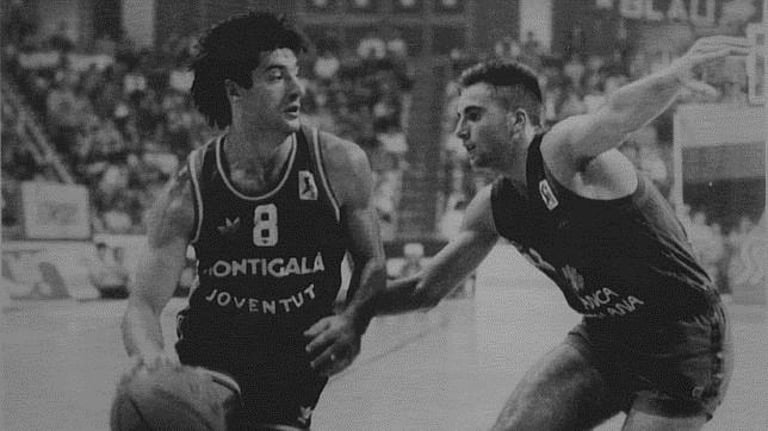
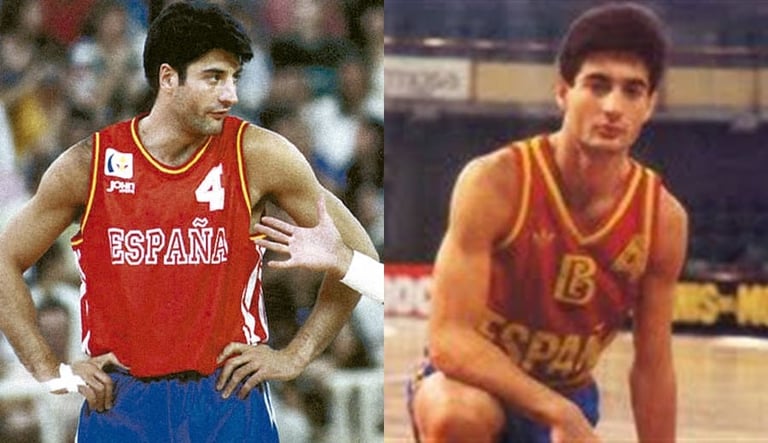


Villacampa craved that league title. He knew that without it, he’d be seen as just a good player—not a true leader. The arrival of Lolo Sainz had a major impact. Alongside some of the best young Spanish players and two excellent Americans (Harold Pressley and Corny Thompson), he led Badalona to “the Promised Land” and the Spanish championship. Next target: the Final Four in Istanbul. Badalona dominated all season, finishing first in the group, breezing past Cibona in the quarterfinals, and crushing Estudiantes in the semis by 22 points. In the final awaited Partizan, who had shocked everyone by eliminating Phillips Milano of “The Gorilla” Darryl Dawkins. Joventut were clear favorites. No one believed the “war children” and their rookie coach could resist. Yet… in perhaps the most dramatic European Cup final ever, Saša Đorđević’s last-second three-pointer gave the trophy to Partizan and left the Spaniards stunned. The second consecutive league title eased the pain a bit, but failing to reach the Final Four in Piraeus the following year (in PAOK’s group) led to Sainz’s departure. His replacement? None other than Željko Obradović, the man who had snatched the crown in Istanbul. Obradović gave Villacampa a new role—not just as a scorer, but as a do-it-all player. With the addition of another offensive weapon, Mike Smith, Villacampa showed new dimensions to his game, and Obradović’s decision paid off. Joventut made it to the Tel Aviv Final Four as the least-favored of the four, with the two Greek giants and rival Barça ahead on paper. They comfortably beat Barcelona in the semi and awaited the winner of the Greek “civil war.” That would be Olympiacos, who entered the court on April 21, 1994, as heavy favorites. But the basketball gods, who had denied Villacampa the trophy two years earlier in heartbreaking fashion, now decided to reward him. Olympiacos collapsed in the second half, going scoreless for the final 6:16, and Thompson hit the dagger three for the final 59–57. Žarko Paspalj knew he'd miss his free throws, and Villacampa—who scored 16 points in an otherwise tough game—had finally reached the pinnacle of his glory. In the years that followed, he was no longer as dominant, and so the end of his career drew near.
After winning his last title—the Spanish Cup in 1997—he retired as the second-leading scorer in Liga ACB history, with 8,891 points in 506 games. He remained close to his beloved Joventut, serving as club president from 2000 to 2017, with his greatest legacy being, in his own words, the creation of the Joventut Badalona Basketball School.
Villacampa fulfilled his dream of playing for the team he loved. Perhaps that choice cost him more titles, but if we asked him, I believe he wouldn’t change a thing about his remarkable career. The green jersey hanging from the rafters of the Pavelló Olímpic will always remind everyone that Joventut’s No. 8 is a perfect 10 to its fans.
